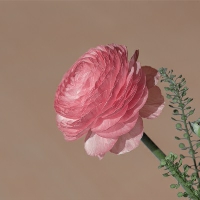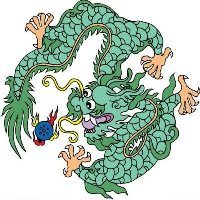高考英语听力练习材料 19
听下面5段对话,回答第1~5小题。
1.What can we learn from the conversation?
A. Mr. Smith will ring back later.
B. The woman forgot to set down Mr. Smith’s mobile number.
C. The man can manage without the mobile number.
2.What will the woman have to do first?
A. Read the operation handbook.
B. Try the buttons one by one.
C. Have the machine repaired.
3. How will the man probably go downtown?
A. By taxi. B. By bus. C. On foot.
4.Why didn’t Jack get the book?
A. He was too busy to go to the library.
B. There wasn’t such a book in the library.
C. He didn’t want to borrow the book.
5.What did the woman want the man to do?
A. To go along to meet her friend with her.
B. To do the woman’s work.
C. To meet Tony for her.
听第6段材料,回答第6~7小题。
6.What did the woman buy as her husband’s birthday present?
A.A hat. B.A tie. C.A shirt.
7.Why did the assistant refuse to help the woman?
A. Because the woman didn’t show him the receipt.
B. Because the thing she wanted to change had been worn.
C. Because the woman told a lie.
听第7段材料,回答第8~10小题。
8.Where did Sue spend the nights in the country?
A. In a farmhouse. B. I n the open. C. At a hotel.
9.What was the weather like in the country?
A. There was a lot of sunshine.
B. It rained nearly every day.
C. It snowed a lot.
10.What did Sue think of the people in the country?
A. They were friendly.
B. They were strange.
C. They were tall.
听第8段材料,回答第11~13小题。
11.What are the speakers mainly talking about?
A. Buying the books for their course.
B. The money needed for the books.
C. Sharing the books with each other.
12.Why does Dr Downs want his students to have these five books?
A. These books are not expensive.
B. He wants his students to read more.
C. He wants to discuss them in detail.
13.How does the woman plan to solve the problems about the books?
A. She buys three and the man buys two.
B. She pays the man fifty dollars for sharing.
C. They each pay half of the total amount for the books.
听第9段材料,回答第14~17小题。
14.When will the man and Tracy meet?
A. At 6:30.B.At 7:00.C.At 7:30.
15.What film doesn’t the woman like?
A. Detective films.
B. Films about love.
C. Horror films.
16.What might the man do tomorrow?
A. Go to the studio. B. See a film. C. Do some reading.
17.When will the man let the woman know the first thing?
A. Tomorrow afternoon. B. Tonight. C. Tomorrow morning.
听第10段材料,回答第18~20小题。
18.Where is the speaker staying now?
A. In England. B. In America. C. In China.
19.How often does the speaker go to Soho?
A. Once a week. B. Twice a week. C. Three times a week.
20.What is his Englis h friend interested in?
A. Eating food.
B. Taking a trip.
C. Mountain climbing.
第一节
听下面5段对话,回答第1~5小题。
(Text 1)
W: What a memory I have! I did write down the mobile number on a sheet of paper when I answered the phone this morning, even that Mr. Smith’s email address, and now it is nowhere to be found!
M: Don’t worry. I’ll be seeing him in an hour. I can ask him for his email address when I see him.
W: That’s very kind of you, Mr. Baker.
(Text 2)
W: This machine has so many buttons. I can’t figure out which one makes it.
M: Well, you’d better read the instructions first. Pressing the buttons improperly may cause the machine to break down.
W: Oh, I see.
(Text 3)
M: What’s the best way to downtown?
W: If you’re in a hurry, you should take a taxi. But it’s kind of expensive.
M: I’m in no particular hurry.
W: Well, in that case, take an airport bus then. It will cost you only about $5.
M: That cannot be a better idea.
(Text 4)
W: Jack, have you got the book I asked you to borrow the other day?
M: Sorry, I haven’t.
W: How come?
M: I couldn’t find time to go to the library.
(Text 5)
W: Could you do me a real favor, please?
M: Yes, of course.
W: I’ve arranged to meet my friend Tony, but I’m really engaged now. I was wondering if you could go along and meet him for me.
M: Oh, yes, certainly!
第二节
听第6段材料,回答第6~7小题。
(Text 6)
M: Can I help you?
W: Yes, well, I bought this tie last week for my husband’s birthday, and er...well he doesn’t like it. Could I change it for something else, such as a shirt or a hat?
M: Certainly, madam, provided that it hasn’t been worn, and if you have the receipt.
W: Yes, here it is.
M: OK, er... this tie looks as if it were worn. I’m afraid I can’t put that back on the shelf.
W: Oh, that’s a pity.
听第7段材料,回答第8~10小题。
(Text 7)
M: Morning, Sue. Did you enjoy your holiday in the country?
W: Yes, thanks. We had a great time. And some friends went with us.
M: Where did you stay? In a hotel?
W: No. We camped in the mountains, near Snowtown. We cooked all our meals over an open fire.
M: Sounds wonderful. Was the weather good?
W: The sun shone nearly every day and it didn’t rain at all.
M: Did you like the people there?
W: Yes, they were great. We met some farmers and had tea in their houses.
M: When did you get back? Last night?
W: No, this morning. You’ll think we were mad. We got up at 4:30, left at 5 and arrived here at 9.I’m so tired. What about you? Did you have a good weekend?
M: Yes, but I didn’t do much. I just stayed at home. The weather was terrible.
听第8段材料,回答第11~13小题。
(Text 8)
M: You see the list of books for this course?
W: Yes, Dr. Downs said he expects us to have the first five on the list. He is going to discuss them in detail.
M: Are you going to buy them?
W:I don’t know. These books are expensive. And I don’t have a lot of money on me.
M: How about sharing them with me?
W: Sounds good.
M: Let’s do this. I will buy three and you buy two of them.
W:I would rather do it this way: we pay fifty-fifty for the books now. And at the end of the course you can take the books you find more interesting and I will take the ones I like.
M: What if we both like the same books?
W: Come on, we are not going to argue over that, are we?
M:I was just joking. It’s definitely a better idea.
W: Then let’s get the books as soon as possible.
听第9段对话,回答第14~17小题。
(Text 9)
M: Oh, no! I’m supposed to meet her at seven sharp. What time is it now?
W: Six thirty.
M: I’d better get ready.
W: Where are you going?
M: Haven’t made up our minds yet. Maybe to a restaurant, or perhaps to the movies first.
W: Why don’t you go and see Citizen Kane at the Classic Film Festival? It’s supposed to be great.
M: Oh, maybe we will. Psycho is also playing. I’ve heard it’s really good, too.
W: If you like horror films with lots of blood. Personally I don’t. Well, I really should be going. Do you want to go swimming tomorrow?
M: I’d be glad to, but I might have to go to the studio and do some work. Can I let you know the first thing in the morning?
W: Sure. That’ll be fine.
M: Oh, there’s the phone. It must be Tracy.
W : Well, I’d better be going then. Have a good time tonight.
M: Thanks. I’ll ta lk to you tomorrow.
听第10段,回答第18~20小题。
(Text 10)
Everybody here is very kind to me, but there are times when I think of home and get rather sad. I sometimes get a little tired of English coo king. Once a week I go to Soho. Soho is a part of London where there are all sorts of restaurants, French, Italian, Greek, Spanish, Indian, and Chinese. So when I’m tired of English cooking, I go to one of the Soho restaurants. Sometimes I even have a bottle of wine! Wine isn’t cheap in England. It isn’t something we drink every day.
English people do not talk as much as we do. I’ve often traveled by train and nobody has spoken to me during the journeys. I know one Englishman who is unusual, he speaks seven languages. He can also be silent in seven languages! But I’ve found one way to make him talk. He’s interested in mountain climbing. If I ask him about climbing, he’s a lways ready to talk.
1~5.CABAC 6~10.BBBAA 11~15.ACCBC 16~20.ACAAC
 半首蝶恋花 2022-10-17 18:12:58
半首蝶恋花 2022-10-17 18:12:58









